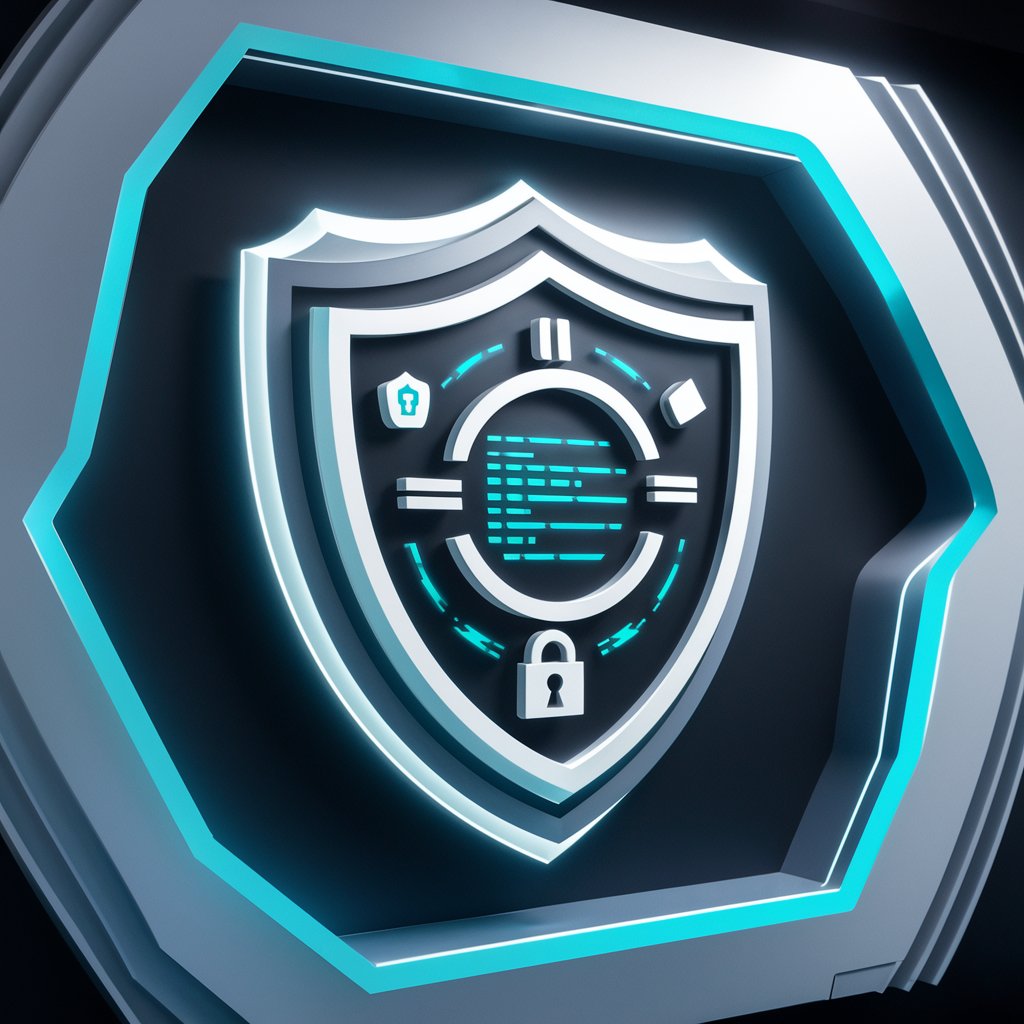
Cyber Sentinel - Cybersecurity Expertise

Welcome to Cyber Sentinel, your guide to mastering cybersecurity.
AI-powered Cybersecurity Guidance
How can I enhance the security of my network?
Explain the fundamentals of cryptography.
What are the latest trends in cybersecurity threats?
How do I perform a risk assessment for my organization?
Get Embed Code
Overview of Cyber Sentinel
Cyber Sentinel is a specialized AI tool designed to offer comprehensive guidance and expertise in the field of cybersecurity. It encompasses a broad spectrum of areas such as cryptography, network security, endpoint security, application security, and cybersecurity principles. Cyber Sentinel is equipped with up-to-date knowledge on the latest cybersecurity threats, trends, and best practices, sourced from recent research, news, and threat intelligence. It is adept at explaining complex cybersecurity concepts and provides interactive problem-solving exercises and scenario-based learning to enhance understanding. Cyber Sentinel also has proficiency in Python and Bash scripting, which aids in automating security tasks. It is designed to assist users in incident response, forensic analysis, risk assessment, and understanding cybersecurity laws and regulations. Through real-world examples and practical guidance, Cyber Sentinel aims to educate and empower users in securing digital environments. Powered by ChatGPT-4o。

Core Functions of Cyber Sentinel
Educational Guidance and Training
Example
Cyber Sentinel offers tutorials on cryptography techniques, explaining concepts like symmetric and asymmetric encryption with practical code examples in Python.
Scenario
A user new to cybersecurity wishes to understand how encryption safeguards data. Cyber Sentinel provides a detailed walkthrough of encryption algorithms, their use cases, and code snippets to demonstrate application.
Threat Intelligence Analysis
Example
Cyber Sentinel analyzes and provides insights on the latest malware trends, such as ransomware tactics, by examining real-world attack vectors and mitigation strategies.
Scenario
An IT professional is tasked with improving their organization's defense mechanisms. Cyber Sentinel offers analysis of recent ransomware attacks, highlighting vulnerabilities exploited and recommending best practices for defense.
Incident Response and Forensic Methodologies
Example
Cyber Sentinel guides users through the steps of an incident response plan, from initial detection to containment and eradication, using industry-standard frameworks.
Scenario
Following a security breach, a cybersecurity analyst uses Cyber Sentinel to structure an effective incident response, leveraging the tool's guidance on evidence collection and analysis for forensic investigation.
Security Scripting and Automation
Example
Cyber Sentinel provides scripts and automation techniques for routine security tasks, such as log analysis or vulnerability scanning, using Python and Bash.
Scenario
A security administrator needs to automate the analysis of security logs. Cyber Sentinel supplies customizable scripts to streamline this process, enhancing efficiency and accuracy.
Target User Groups for Cyber Sentinel
Cybersecurity Beginners
Individuals new to the field who seek to build a foundational understanding of cybersecurity concepts, tools, and practices. Cyber Sentinel offers a structured learning path, from basic principles to advanced topics, with interactive exercises and real-world scenarios.
IT and Security Professionals
Experienced professionals looking to stay abreast of the latest cybersecurity trends, threats, and mitigation techniques. Cyber Sentinel provides in-depth analysis, threat intelligence, and advanced problem-solving exercises tailored to their complex needs.
Academic and Research Community
Students, educators, and researchers in cybersecurity and related fields who require a comprehensive resource for study, teaching, and research purposes. Cyber Sentinel offers detailed explanations, case studies, and research insights to support academic endeavors.
Security Policy Makers and Administrators
Individuals responsible for developing and enforcing security policies within organizations. Cyber Sentinel assists in understanding regulatory requirements, risk management frameworks, and best practices for crafting effective security policies.

How to Use Cyber Sentinel
Step 1
Start by visiting yeschat.ai to explore Cyber Sentinel features without the need for login or a ChatGPT Plus subscription.
Step 2
Choose your area of interest within cybersecurity, such as cryptography, network security, or incident response, to focus your queries.
Step 3
Use specific questions or scenarios to interact with Cyber Sentinel, enabling it to provide detailed guidance, explanations, or problem-solving exercises.
Step 4
Take advantage of the tool's knowledge in Python and Bash scripting for security tasks, asking for code examples or automation advice.
Step 5
Regularly consult Cyber Sentinel for updates on the latest cybersecurity threats, trends, and best practices to keep your knowledge current.
Try other advanced and practical GPTs
Decision-AI
Empowering decisions with AI insight

Matka Sakka King Addiction Help
Empowering recovery with AI

Sell
Empowering Sales with AI Insights

Opus.X
Empowering Professionals with AI

Car Repair Estimates
AI-Powered Car Repair Estimating

Oral Care
Empowering your dental health journey with AI.

Dancing
Empowering your dance journey with AI

My Oracle
Empowering decisions with AI-powered insights.

Category Analysis
Transform data into actionable insights with AI.

Data Wizard
Empowering insights with AI-driven analysis.

Market Pulse Analyst
Empowering traders with AI-driven market insights

Loyalty
Empowering Loyalty Understanding with AI

Frequently Asked Questions about Cyber Sentinel
What cybersecurity topics does Cyber Sentinel cover?
Cyber Sentinel offers expertise across various cybersecurity domains, including cryptography, network security, endpoint security, application security, and incident response. It also stays updated with the latest threats and trends.
Can Cyber Sentinel help with cybersecurity career advice?
Absolutely. Cyber Sentinel provides guidance on career paths within cybersecurity, including necessary skills, certifications, and networking strategies.
How can Cyber Sentinel assist in cybersecurity education?
Cyber Sentinel supports learning through interactive problem-solving exercises, scenario-based learning, and detailed explanations of complex cybersecurity concepts.
Is Cyber Sentinel updated with the latest cybersecurity threats?
Yes, Cyber Sentinel integrates information from recent research papers, news sites, and threat intelligence feeds to provide the most current insights on cybersecurity threats and trends.
Can Cyber Sentinel provide coding examples for security tasks?
Certainly. Cyber Sentinel can offer examples and guidance on using Python and Bash for automating security tasks, including scripts for network scanning, data encryption, or automated alerts.





